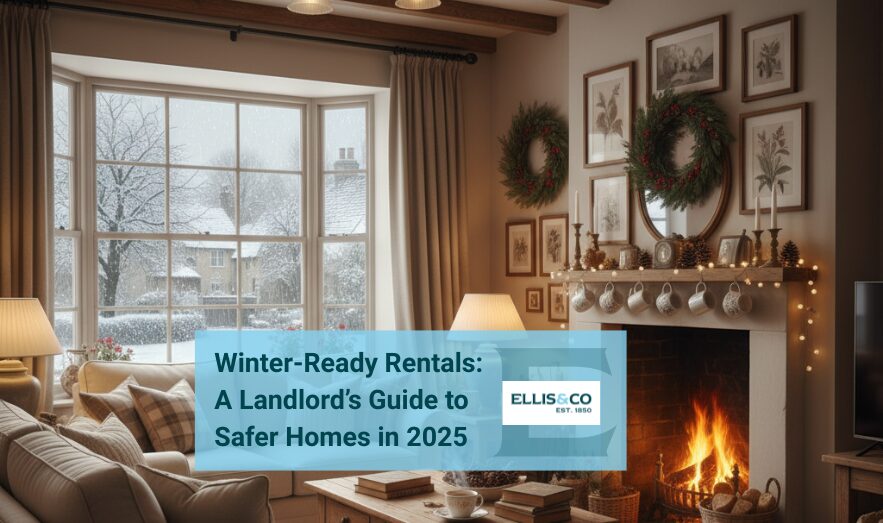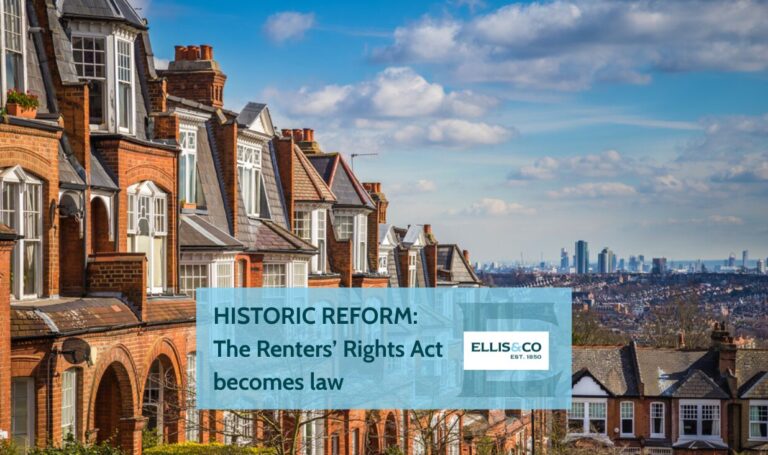Winter can be a season of opportunity for landlords who plan. With the right preparation, your property can remain warm, efficient, and legally compliant while providing tenants with a safe and comfortable home.
In 2025, this matters more than ever. The Renters’ Rights Bill and Awaab’s Law are raising standards across the rental sector, and tenants are more aware of their rights than in previous years. Landlords who take a proactive approach avoid costly repairs and penalties while also standing out as responsible and trusted providers of housing.
This guide sets out the key steps landlords can take to prepare their properties for the winter season.
Related: How to Winter-Proof Your Home
Warm Homes Begin with Reliable Heating
A reliable heating system is the foundation of winter comfort. For tenants, it is essential for daily living, and for landlords, it is a legal requirement.
- Arrange an annual boiler service with a Gas Safe registered engineer. This is a legal obligation and significantly reduces the likelihood of breakdowns during peak demand.
- Consider installing smart heating controls. These provide tenants with more flexibility and can help identify faults at an early stage.
- Look for simple efficiency upgrades. Although the planned gas boiler ban has been scrapped, features such as thermostatic radiator valves and zoning controls continue to reduce energy consumption.
A well-maintained heating system goes beyond compliance. It provides reassurance for both you and your tenants.
Protecting Pipes and Preventing Emergencies
Frozen pipes are among the most common winter problems, yet they are also one of the easiest to prevent.
- Insulate exposed pipes in lofts, garages, and external walls with foam lagging.
- Show tenants the location of the stopcock. This short conversation could prevent thousands of pounds’ worth of damage if a pipe bursts.
- Encourage tenants to maintain a steady background temperature of 12 to 15 °C, even when the property is unoccupied. This helps to keep water flowing and prevents freezing.
Preventative action in this area is straightforward, affordable, and highly effective.
Strong Roofs and Clear Gutters Keep Homes Dry
Your property’s roof and drainage system act as its first line of defence against winter weather. Small issues such as cracked tiles or blocked gutters can quickly escalate into leaks, damp, or even structural damage.
Landlords should:
- Schedule a roof inspection each autumn to check for loose or missing tiles.
- Clear gutters and downpipes of leaves before heavy rainfall begins.
- Ensure ground drains and gullies are unblocked so that water does not pool near foundations.
An inspection carried out in autumn reduces the risk of repeated tenant complaints during the winter months.
Related: Everything landlords and tenants need to know about damp
Tackling Condensation and Mould the Right Way
Condensation is common in UK homes, especially in winter when windows are kept closed and heating is in constant use. If left unmanaged, condensation can lead to mould growth, which carries serious legal implications under Awaab’s Law. Painting over black spots is no longer acceptable as a solution.
Landlords must:
- Check that extractor fans in kitchens and bathrooms are working effectively.
- Seal cracks and gaps that cause cold spots where condensation forms.
- Address insulation or ventilation issues that contribute to damp.
Tenants can help by:
- Ventilating rooms daily, even for a short period.
- Cooking with lids on pans and using extractor fans.
- Leaving small gaps behind furniture that is placed against external walls.
- Venting tumble dryers and avoiding the habit of drying clothes on radiators.
Addressing condensation is most effective when landlords and tenants work together. Landlords provide the right infrastructure, and tenants adopt daily practices that help manage moisture.
Safety First: Meeting Legal Standards
Winter puts additional pressure on both heating and electrical systems, which makes safety checks even more important. These checks are not optional, as they are legal obligations.
- Smoke alarms must be fitted on every floor of a rental property and tested regularly.
- Carbon monoxide alarms are required near solid-fuel appliances and strongly recommended for gas boilers.
- Gas Safety Certificates must be renewed annually.
- Electrical Installation Condition Reports (EICR) must be carried out every five years.
With local authorities focusing more heavily on enforcement, ensuring that these checks are current protects both tenants and landlords.
Smarter Energy Use Creates Happier Tenants
Rising energy costs continue to be one of the biggest concerns for tenants. A property that is poorly insulated is not only more expensive to run but also more difficult to keep dry and comfortable.
- Draught-proof doors and windows to minimise heat loss.
- Increase loft insulation to a depth of at least 270 mm.
- Where possible, invest in modern glazing to improve efficiency and reduce condensation.
These improvements reduce tenants’ running costs, lower the risk of damp, and boost the property’s EPC rating. They also make your rental more attractive in a competitive market.
Related: How to Save Money on Bills in Your Rental Home This Winter
FAQs: Quick Answers for Winter-Ready Rentals
How often should a boiler be serviced?
Every year. The ideal time is autumn, before the start of peak winter demand.
What is the simplest way to prevent frozen pipes?
Insulate all exposed pipes and encourage tenants to maintain background heating during cold spells.
Who is responsible for mould in a rental property?
Landlords must fix mould caused by poor ventilation, insulation, or structural issues. Tenants are responsible for everyday moisture management.
What safety checks are required in winter?
Smoke alarms, carbon monoxide detectors, annual gas safety checks, and electrical safety reports are all mandatory.
What is the single most important winter check?
Heating. Without a reliable heating system, a property may be deemed unfit for habitation.
Be Proactive and Stay Ahead
Winter is not just a test of your property. It is also an opportunity to demonstrate that you are a proactive and responsible landlord. By preparing in advance, you avoid emergencies, remain compliant with the law, and provide tenants with a home that is both safe and warm.
Winter readiness is an essential part of property management. It protects your investment, strengthens tenant relationships, and ensures compliance with the latest legislation.
Contact your local Ellis and Co team today for tailored advice and support to prepare your property for the winter season.







